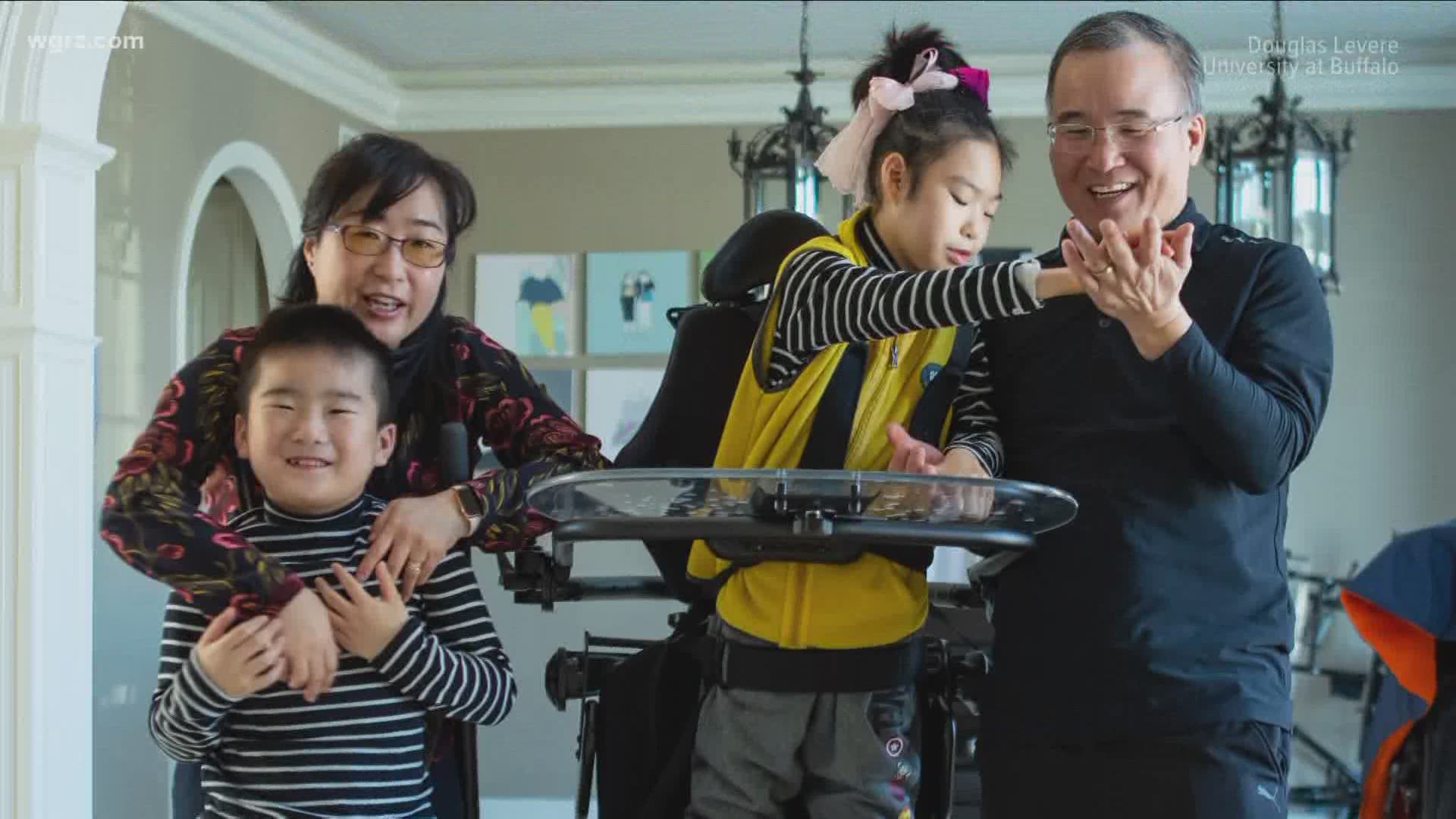BUFFALO, N.Y. — Yuna Lee, who is 10 years old, has a condition so rare that it's only documented in about 670 people around the world: a genetic mutation that wasn't apparent when she was born.
But her parents, Jae and Soo, both now researchers at the University at Buffalo, quickly noticed something was wrong.
"Her brain is not growing, so at that time we were puzzled about what was going on," Jae said.
After a couple of years with no answers, Soo learned she was pregnant with their second child, Yuna's brother Joon.
To make sure Yuna's condition wasn't inherited -- putting Joon at risk -- Yuna underwent a special analysis. It showed she had a mutation of a particularly important gene.
"In our daughter's case, Yuna's case, it happened to happen in one of the very critical genes for making the brain, which is FOXG1," Soo said.
As this New York Times profile on the Lee family put it, "Yuna was missing one nucleotide, Number 256 in the 86th amino acid of one copy of FOXG1," one of tens of thousands of genes in our bodies.
It's hard to overstate the extraordinary odds, but even more unlikely was her parent's connection to the condition long before Yuna was born.
"We do study the development of the brain," said Soo, who had worked specifically with the FOX family of genes.
"We've been studying human brain development way long before my daughter was born," Soo explained. "It was my passion to understand how the human brains are made and how genetic changes impact in the brain formation."
Yuna's diagnosis shifted the focus of their study of the brain. These neurobiologists and parents are now global leaders in FOXG1 research.
"This really made us look at the problem in a completely different way," Jae said.
They were making progress in their research and then came the COVID-19 pandemic, which forced labs around the country to close.
"This is unexpected pause for our research," Soo said.
They weren't alone. Colleges and Universities around the world halted studies. Clinical trials were especially hard hit.
NPR identified at least 440 clinical trials that were suspended due to COVID concerns. Those trials involved as many as 200,000 people. About a quarter of those were for cancer treatments.
"Such a great loss, absolutely," Jae said regarding the closing of labs due to the virus.
Despite that downfall, there was a silver lining for the Lee family. Time not spent in the lab was time well spent at home.
"I can see Yuna growing and maturing into a beautiful girl and showing more cognition and showing a lot better progress at home than I worried, so that's great," Soo said.
Their research is now back underway.
Next week, the Lees and the University at Buffalo were supposed to host the FOXG1 Science Symposium. Coronavirus caused it to go virtual, but UB will host the event in 2021.
"We will put our brains together to find the best solutions to this incredibly difficult problem," Soo said.
The Lees say University at Buffalo and this region have embraced them and their research.
If you wish to donate to the search of FOXG1, you can donate here.

